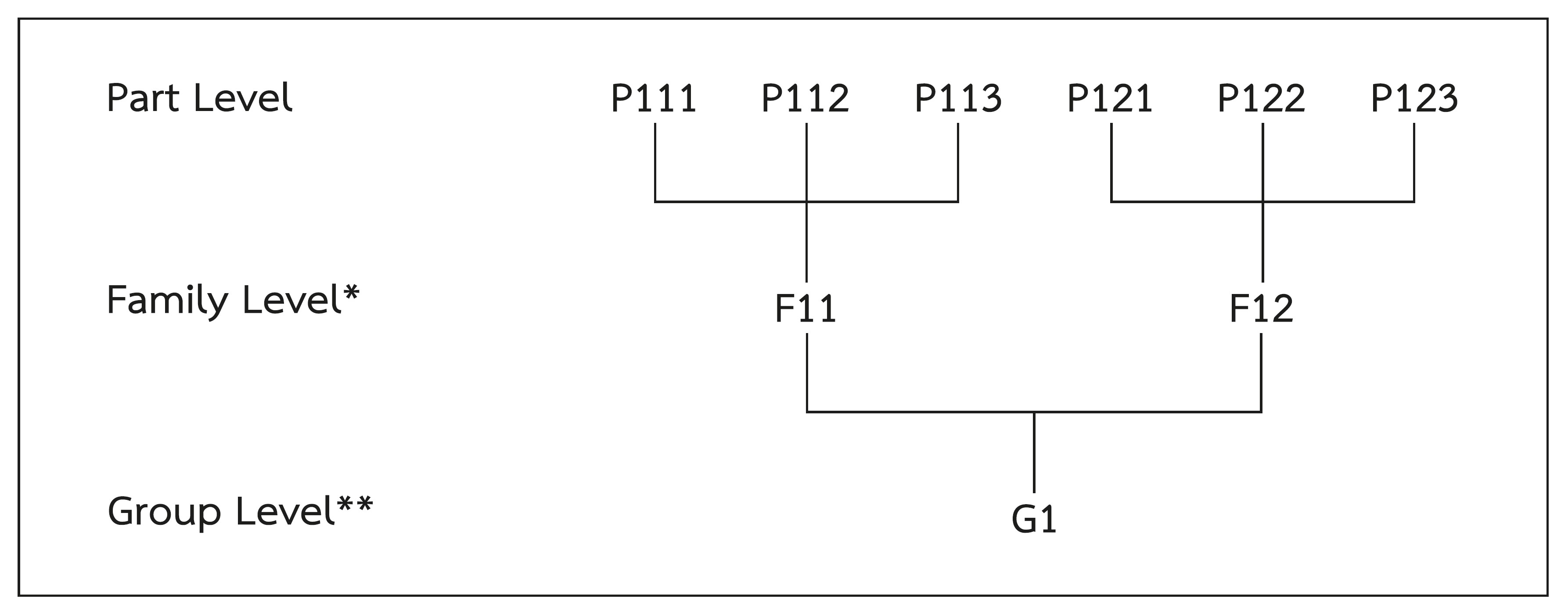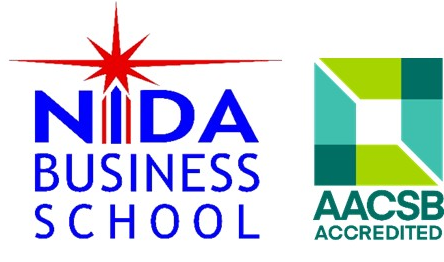อัลกอริทึมในการคำนวณปริมาณการผลิตในระบบการผลิตแบบยึดหยุ่น พร้อมการทดลองในโมเดลการผลิตแบบจำลอง
บทคัดย่อ
ระบบการผลิตแบบยึดหยุนเป็นระบบการผลิตที่สามารถปรับเปลี่ยนตัวเองเพื่อสามารถรองรับการผลิตสินค้าที่มีการเปลี่ยนแปลงทั้งในเชิงประเภทและปริมาณ เครื่องจักรและระบบคอมพิวเตอร์จะถูกนำมาใช้ในระบบการผลิตให้ทำงานประสานกันที่จะทำให้สามารถผลิตชิ้นส่วนที่แตกต่างกันในปริมาณการผลิตที่ไม่คงที่ งานวิจัยนี้เกี่ยวข้องกับการตัดสินใจกำหนดปริมาณการผลิตซึ่งมีความสำคัญมากในการนำระบบการผลิตแบบยึดหยุ่นมาใช้ได้อย่างประสบความสำเร็จ งานวิจัยนี้มีเป้าหมายเพื่อดัดแปลงอัลกอริทึมในการกำหนดปริมาณการผลิตที่ใช้ในระบบการผลิตแบบจ๊อบช๊อปให้สามารถนำมาใช้ในระบบการผลิตแบบยึดหยุ่นที่มีสภาพการผลิตที่แตกต่างออกไป และทำการทดสองประสิทธิภาพการใช้งานของอัลกอริทึมในโมเดลจำลองการผลิตแบบยึดหยุ่นในสภาพการผลิตที่แตกต่างกัน
เอกสารอ้างอิง
Arn, E. (1975). Group technology. Heidelberg: Springer-Verlag. https://doi.org/10.1007/978-3-642-66262-1
Burbidge, J. L. (1975). The introduction of group technology. New York: Wiley.
Burbidge, J. L. (1979). Group technology in the engineering industry. London: Mechanical Engineering Publications Ltd.
Devries, M., Harvey, S., & Tipnis, V. (1976). Group technology: An overview and bibliography. Cincinnati, Ohio: The Machinability Data center.
Edwards, G. A. B. (1971). Readings in group technology cellular systems. London: The Machinery Publishing Co., Ltd.
Fogarty, D. W., & Barringer, R. L. (1984). Scheduling manufacturing cells and flexible manufacturing systems. Proceedings of the Zero Inventory Philosophy and Practices Seminar, 104-110.
Fogarty, D. W., & Barringer, R. L. (1987). Joint order release decisions under dependent demand. Production and Inventory Management, 28(1), 55-61.
Gallagher, C. C., & Night, W. A. (1973). Group technology. London: Butterworths.
Ham, I., Hitomi, K., & Yoshida, T. (1985). Group technology: Applications to production management. Boston: Kluwer-Nijhoff Publishing. https://doi.org/10.1007/978-94-009-4976-8
Hyer, N. L. (Ed.). (1984a). Group technology at work. Dearborn, Michigan: Society of Manufacturing Engineers.
Hyer, N. L. (1984b). The potential of group technology for U.S. manufacturing. Journal of Operations Management, 4(3), 183-202. https://doi.org/10.1016/0272-6963(84)90011-1
Hyer, N. L., & Wemmerlov, U. (1982). MRP/GT: A framework for production planning and control for cellular manufacturing. Decision Sciences, 13(1), 681-701. https://doi.org/10.1111/j.1540-5915.1982.tb01899.x
Hyer, N. L., & Wemmerlov, U. (1984). Group technology and productivity. Harvard Business Review, 62, 140-149.
Levulis, T. S. (1978). Group technology - A review of the state of the art in the United States Chicago, Illinois: K.W. Tunnell Company.
Mitrofanov, S. P. (1966). Scientific principles of group technology. (English translation), J. Grayson (Ed.), London: National Lending Library for Science and Technology.
Patterson, W. J., & LaForge, L. R. (1985). The incremental part period algorithm: An alternative to EOQ. Journal of Purchasing and Materials Management, 21 (2), 28-33. https://doi.org/10.1111/j.1745-493X.1985.tb00132.x
Petrov, V. A. (1966). Flow line group planning. (English translation), E. Morris (Ed.), Yorkshire: National Lending Co. Petrov, V. A. (1968). Flow line group production planning. London: Business Publications.
Rabbi, M. F., & Lakhamani, G. (1984). Relationship between group technology and material requirements planning. Proceedings of the 1984 Annual International Industrial Engineering Conference, 483-486.
Ranson, G. (1972). Group technology. London: McGraw-Hill. Suresh, N. C. (1979). Optimizing intermittent production systems through group technology and an MRP system. Production and Inventory Management, 20 (4), 77-84.
Wemmerlov, U., & Hyer, N. L. (1987). Research issues in cellular manufacturing. International Journal of Production Research, 25 (3), 413-431. https://doi.org/10.1080/00207548708919850

ดาวน์โหลด
เผยแพร่แล้ว
รูปแบบการอ้างอิง
ฉบับ
ประเภทบทความ
สัญญาอนุญาต
ลิขสิทธิ์ (c) 2020 https://creativecommons.org/licenses/by-nc-nd/4.0/

อนุญาตภายใต้เงื่อนไข Creative Commons Attribution-NonCommercial-NoDerivatives 4.0 International License.



